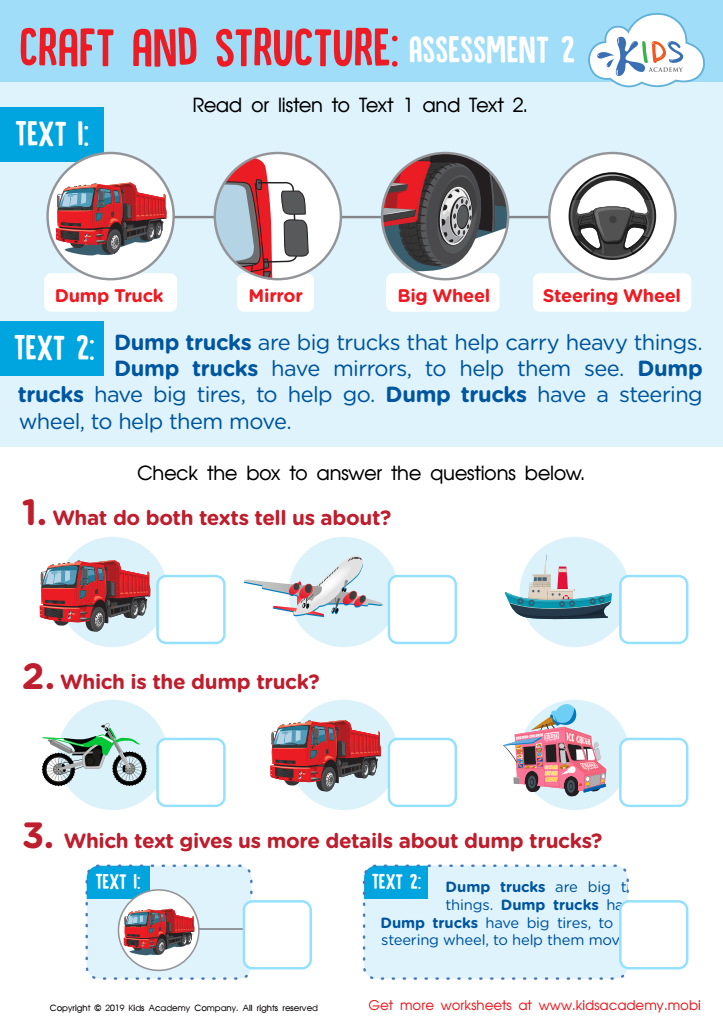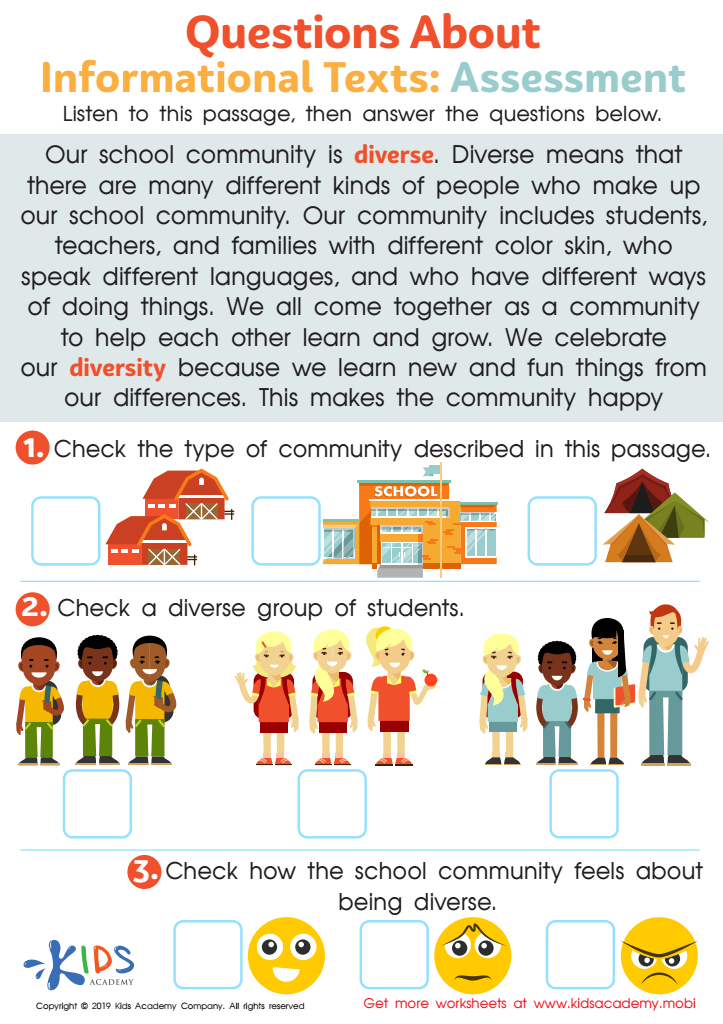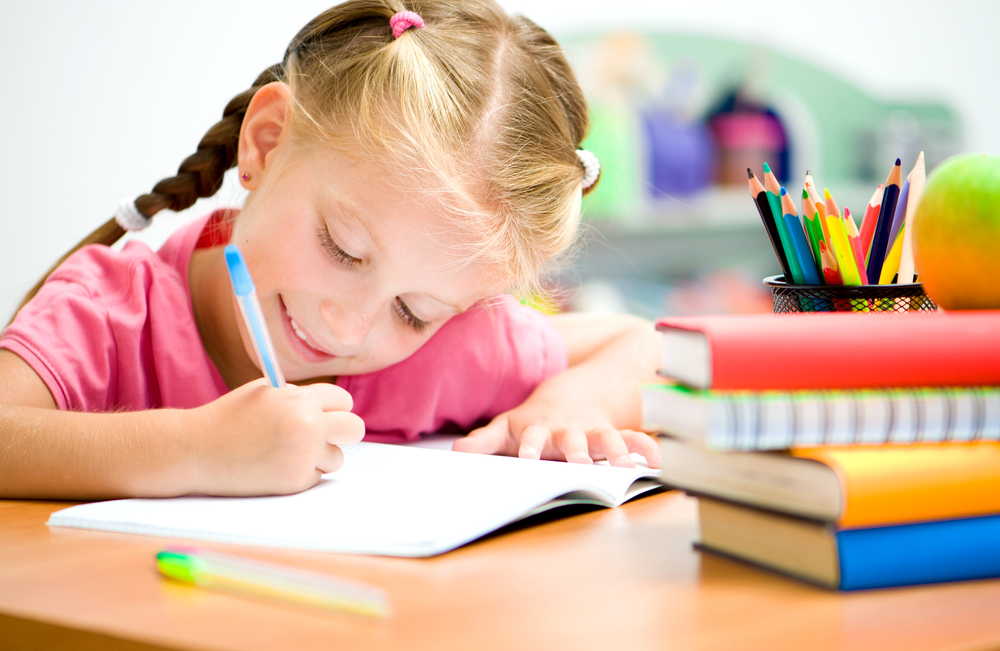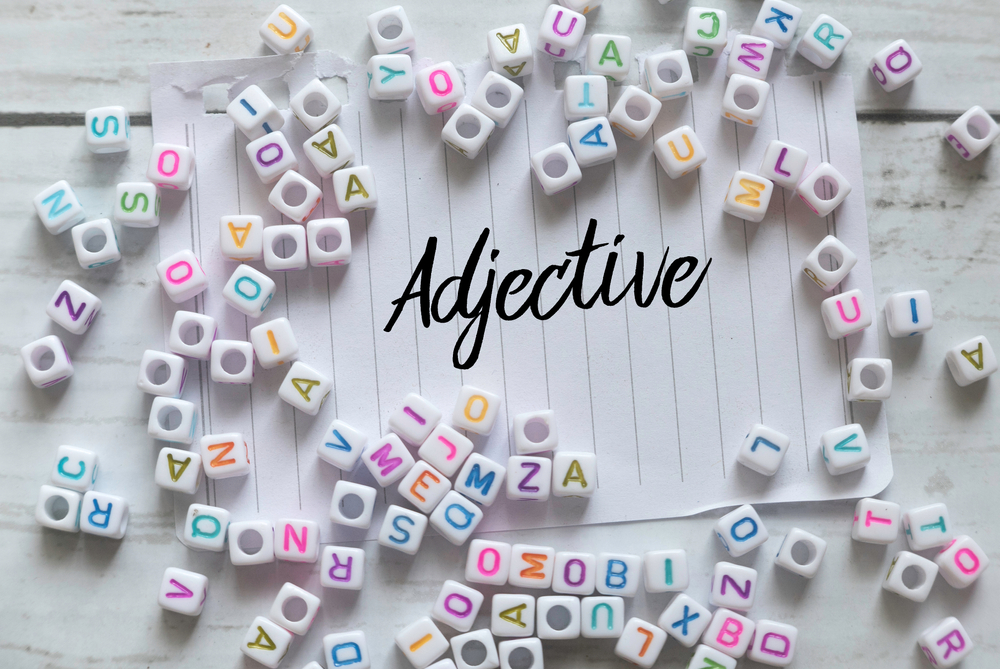Reading Non-Fiction worksheets activities for 4-Year-Olds
2 filtered results
-
From - To


Craft and Structure: Assessment 2 Worksheet


Questions About Informational Texts: Assessment 1 Worksheet
Why Reading Non-Fiction Worksheets Activities Are Useful
In today's information-rich world, the ability to comprehend, analyze, and synthesize non-fiction texts is more crucial than ever. Reading Non-Fiction worksheets activities stand out as invaluable tools in fostering these skills among learners of all ages. These activities not only enhance reading comprehension but also equip individuals with the ability to navigate the vast seas of information they encounter daily.
First and foremost, Reading Non-Fiction worksheets activities are designed to teach critical thinking. As readers delve into texts about real-world issues, scientific discoveries, historical events, and biographies, they're prompted to question, evaluate, and reflect on the content. This critical engagement with texts encourages deeper understanding and retention of information, which is vital in our fast-paced, data-driven society.
Additionally, these worksheets are tailored to improve literacy skills. They often include vocabulary exercises, comprehension questions, and summary writing tasks that challenge readers to expand their language proficiency. By engaging with a variety of non-fiction texts, learners become more adept at decoding complex language, an essential skill for academic success and lifelong learning.
Moreover, Reading Non-Fiction worksheets activities foster an appreciation for factual knowledge. In an era where misinformation can spread quickly, the ability to discern credible sources and trust reliable information is paramount. Through regular engagement with non-fiction texts, individuals develop a keen eye for accuracy, enhancing their capacity to make informed decisions and form educated opinions on a myriad of subjects.
Lastly, these worksheets provide a structured approach to learning that can benefit diverse learning styles. Whether through individual study or group discussions, Reading Non-Fiction worksheets activities cater to different needs, ensuring that each learner can engage with the material in a way that best suits them.
In summary, Reading Non-Fiction worksheets activities are not just educational tools; they are building blocks for nurturing informed, critical, and engaged citizens. By prioritizing these activities in educational settings, we can better prepare individuals to navigate the complexities of the modern world with confidence and competence.

 Assign to the classroom
Assign to the classroom

.jpg)










